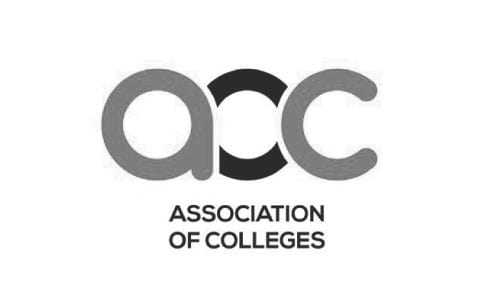We returned to College for the new academic year knowing that it was going to be a challenging term as we balanced important pandemic safety protocols with the essential move of getting our students back into a classroom environment.
Planning for a COVID-safe return at Nelson and Colne College Group consumed a lot of time over the summer months, however, I have also been busy working with colleagues across the UK with the Independent Commission on the College of the Future as England’s Principal representative.
I was delighted to put my name down in support of a new report published last week on colleges working with the NHS to assist easing its workforce difficulties – a collaboration between the Commission and the NHS Confederation.
Recent months have been painful for our country during this pandemic. Yet we have been reminded just what a wonderful asset the NHS is as it rose to meet the challenge of COVID-19, and we saw College students and staff volunteering for the NHS and in care homes to support their communities.
For the NHS to continue to serve us in our hour of need, further investment is required. If the Government is going to tackle the significant workforce challenges across the NHS and social care – there are around 90,000 NHS vacancies, on top of more than 120,000 in social care – colleges need funding in order to support this.
The new report calls for “employer hubs” to be set up across England to bring together local NHS organisations, including hospitals and general practices, with their local Further Education colleges to collaborate on courses and a pipeline for the local recruitment of health and care staff across a range of professions.
We at Nelson and Colne College Group enjoy a deep and long-standing relationship with East Lancashire Hospitals NHS Trust, and we already support them in a number of innovative ways. However, it is not like that everywhere, and there is scope for growth and development.
The proposed hubs would focus on supporting local people to enter or progress careers in health and care, including through recruitment, upskilling and retraining, and in doing so, tackle local workforce shortages, which can vary considerably across the country.
In the joint publication, we call on the Government to:
- Invest £5million over two years to pilot employer hubs in each of the seven NHS regions in England to help NHS and care organisations’ recruitment and training
- Support the creation of a Health and Care College Council in England, with £2million funding over three years to create a national council to promote, develop and embed the essential contribution of colleges in education and training pipelines in England, and
- Embed the role of colleges in the local delivery of the national NHS People Plan, which was published in July
The role and contribution of colleges within the education and skills system, and specifically in the minds of large employers such as the NHS is all too often poorly understood. With these recommendations, we have an opportunity to unlock their potential to develop strong and sustainable pathways into NHS careers for local people using tangible steps.
We at the Commission are looking forward to continuing to work with the UK Government as they set out their plans for Further Education in England with a White Paper later this year – I’ll keep you informed of its progress.
Until next month, Amanda.
















